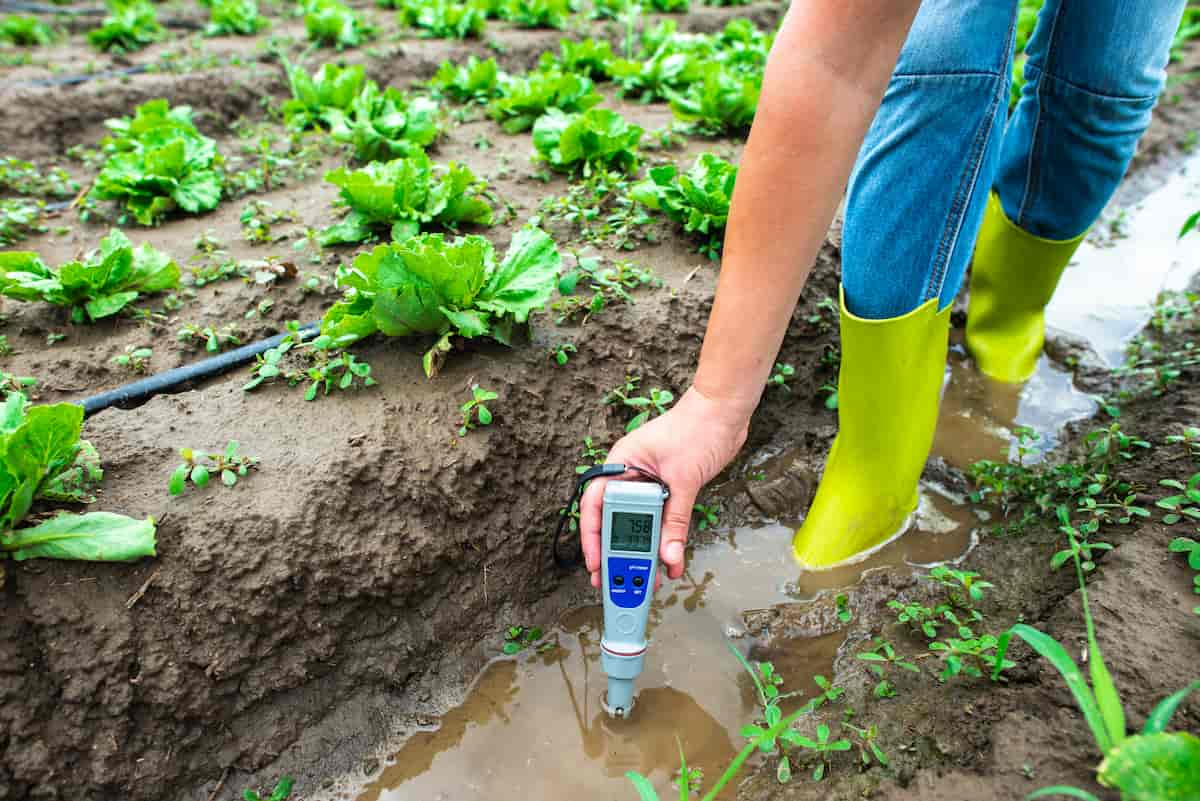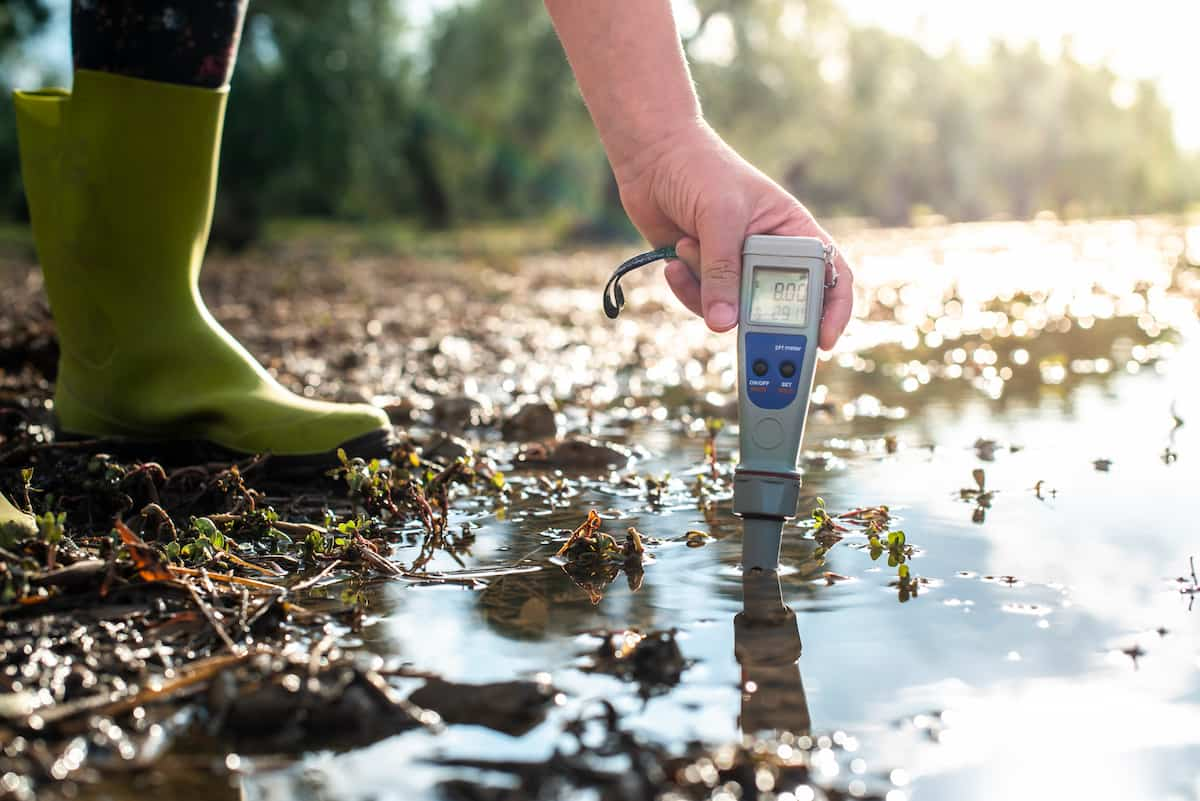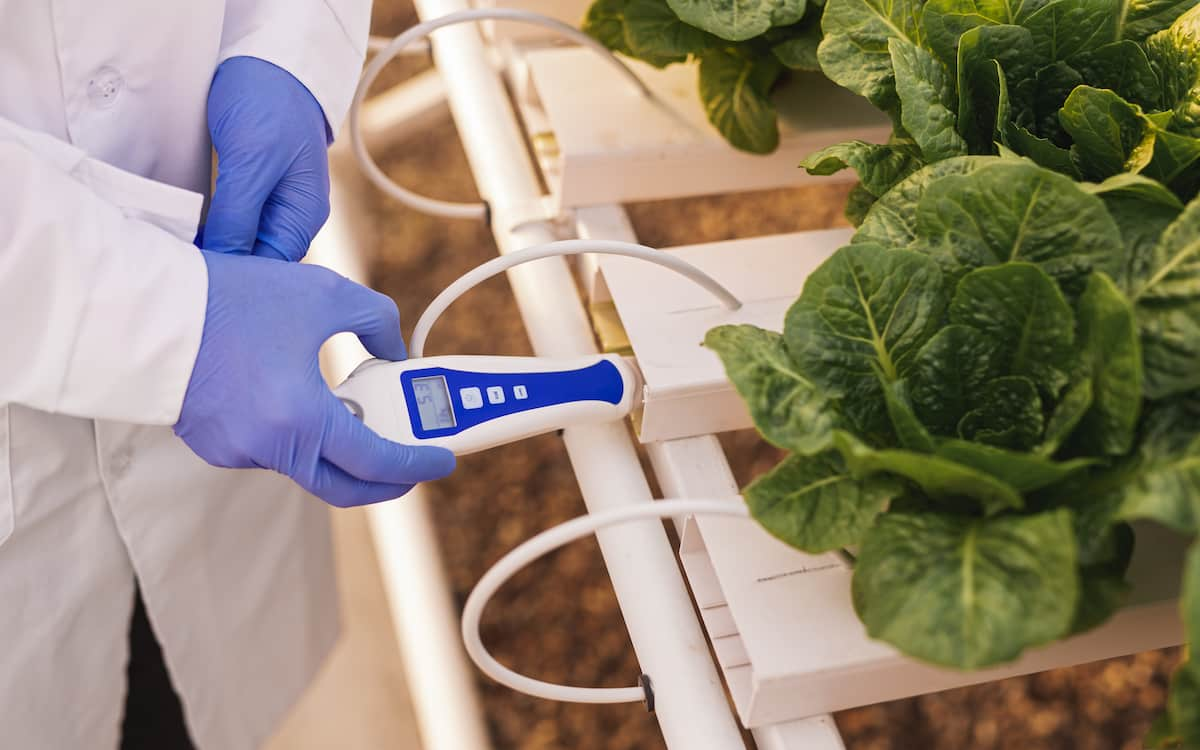The acidity or alkalinity of water can have a significant impact on plant growth and health. The pH of water can have a big effect on your garden plants. If you’re not sure what the pH of your water is, you can test it with a simple home testing kit. Once you know the pH of your water, you can take steps to adjust it if necessary. This may involve adding chemicals to raise or lower the pH or using filtered water for watering instead of tap water. By regularly testing for pH levels, you will be able to ensure that your plants are receiving all they need to thrive.

How the pH of Water Can Affect Your Garden Plants
What is the pH of Water?
pH level is a measure of how acidic or basic a solution is. It is measured on a scale of 0 to 14, with 7 being neutral. A water pH below 7 is acidic, and a pH above 7 is basic. Water with a high pH can harm plants because it can make it difficult for them to take up nutrients from the soil. Water with a high pH can also lead to leaf damage and scorching. Conversely, water with a low pH can also be damaging to plants as it can make the water too acidic for plant growth.
Adjusting the pH of Your Water
The pH of your water can greatly impact your garden plants. If the pH level is too high or too low, it can damage the plant’s roots and leaves. You can test the water’s pH level with a simple garden center or hardware store test kit. You’ll need to add an acidic or basic substance to the water to adjust the pH. For example, add vinegar to lower the pH if your water is too alkaline. If your water is too acidic, add limestone to raise the pH.
Water with a high pH can make it difficult for plants to absorb nutrients from the soil. This can lead to nutrient deficiencies and stunted growth. Additionally, alkaline water can increase the toxicity of certain chemicals in the soil, making them more harmful to plants. Conversely, water with a low pH can be corrosive and damage plant roots. It can also make soil particles clump together, making it difficult for roots to penetrate the soil and access nutrients.
To ensure that your garden plants get the right amount of water with the ideal pH level, you can test your water at home with an inexpensive kit from your local hardware store. In addition, pH can be measured with a simple test kit from a gardening store or online. Once you know the pH of water, you can adjust it to create the ideal growing conditions for your plants.
In case you missed it: Soil pH Levels for Plants: How to Check for Vegetables, Fruits, Flowers, and Herbs

Why pH is Important for Plants
pH is important for plants because it determines how well they can absorb nutrients from the soil. Plants cannot absorb nutrients effectively if the pH level is too high or too low. This effect can lead to stunted growth, yellowing leaves, and other problems. Keeping the pH in the optimal range ensures plants get the nutrients they need to thrive.
The Different pH Levels for Different Plants
- The pH level is a measure of how acidic or alkaline something is. The pH goes from 0 to 14, with 0 being the most acidic and 14 being the most alkaline. Most plants prefer a pH between 6 and 7, which is slightly acidic. Anything below 7 is acidic, and anything above 7 is alkaline.
- Water with a too high or low pH can harm your plants. If the pH of your water is too low, it can make it difficult for your plants to absorb nutrients from the soil. If the pH of water is too high, it can damage plant roots and leaves.
- The ideal pH for most plants is between 6 and 7. To change the pH of water, you can add chemicals such as lime or sulfur to raise the pH or aluminum sulfate or muriatic acid to lower the pH. You should always test the pH of your water before adding any chemicals.
How Does High pH in Water Affect Plant Growth?
The pH of water can have a big impact on the health of your garden plants. A high pH in water can make it difficult for plants to absorb nutrients from the soil, leading to stunted growth and yellowing leaves. Additionally, high-pH water can encourage algae growth and other aquatic weeds, which can compete with your plants for resources.
If you suspect your water has a high pH, test it with a simple at-home kit or take a sample to your local cooperative extension office. Once you know the pH of your water, you can adjust your gardening practices accordingly. For example, if you have high-pH water, you may need to amend your soil with sulfur or another acidic material to lower the overall pH level. You can also use specially formulated fertilizers designed for use in high-pH environments.
How Does Water pH Affect Plant Germination?
The pH of water can greatly impact the germination and growth of plants. Water with a high pH can make it difficult for seeds to germinate and may stunt young plants’ growth. Water with a low pH can damage plant roots and leaves and may also prevent seedlings from growing.
In case you missed it: Best Soil Management Practices: A Comprehensive Guide for Beginners

Conclusion
Water pH can significantly affect the health of your garden plants. Plants need a certain level of acidity or alkalinity to thrive, and if the pH of your water is off, it can throw them out of balance. This can lead to poor growth, yellowing leaves, and even death. The pH of water can play an important role in the health of your garden plants. It is important to remember the acidity or alkalinity of your water, as it can drastically affect the growth and well-being of your plants.
- Feed Your Flock for Less: Top 10 Tips to Save on Chicken Feed
- Ultimate Guide to Ossabaw Island Hog: Breeding, Raising, Diet, and Care
- Hatching Answers: The Top 10 Reasons Your Chickens Aren’t Laying Eggs
- Eggs and Economics: Breaking Down the Cost of Raising Backyard Chickens
- Defend Your Greens: Proven Methods to Keep Iguanas Out of Your Garden
- Ultimate Guide to Cinnamon Queen Chicken: A Comprehensive Guide for Beginners
- Ultimate Guide to California Tan Chicken: Breeding, Raising, Diet, Egg-Production and Care
- Ultimate Guide to Marsh Daisy Chicken: Breeding, Raising, Diet, and Care
- 10 Types of Chicken Farming Businesses You Can Start for Profits